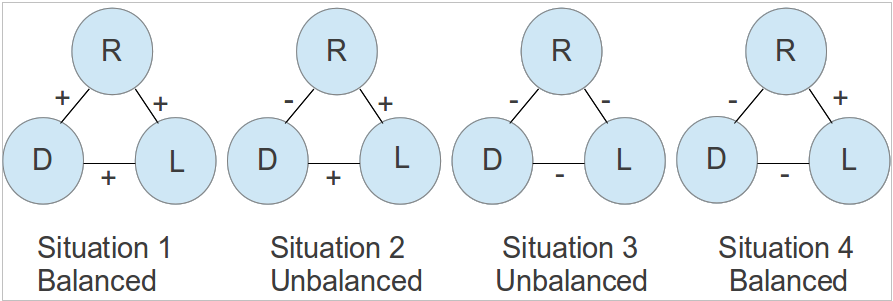There Can Be Only Two – Third Parties in America
Obama or Romney? That’s a question that will come up more and more in the coming months as November’s presidential election swiftly approaches. Ask enough people and many people will tell you “Obama”, many people may also tell you “Romney”, a few people might even tell you that they intend to vote on Gary Johnson. With talk of presidential candidates is often limited to Democrats and Republicans, it’s easy to forget about third parties; of which the Libertarian party is largest. Historically, third parties have rarely had much of a direct influence on presidential elections. Sure, there have been several instances where a third party candidate steals votes from a major party candidate causing the other side to win. But when was the last time a third party candidate was a serious contender in a national election?
The article that I read discusses the growth of the Libertarian party and its effect on the two major parties in the United States. Gary Johnson is the Libertarian party candidate for the 2012 election. As it turns out, the inclusion of Gary Johnson in polls takes votes away from both major party candidates. But, the article also mentions that Mitt Romney takes more of a loss than President Obama when Gary Johnson is mentioned. What does this mean for the national election and the Libertarian party as a whole?
As it turns out, there is a very good reason that third parties rarely gain much influence in national elections. That reason is the Structural Balance property of networks. The Structural Balance property dictates which kind of networks are balanced. In the graphic below, pluses signify that the parties agree with one another, while minuses represent disagreement. In the first situation, everyone agrees with each other. Not only does this not allow for a third party, it doesn’t even allow for a second party. If everyone is in agreement, then parties need not exist. It does not look like this will happen any time soon. In situation two, the major two parties disagree with each other, but the third party agrees with both of them. This situation does not make much logical sense as the third party does not add anything to the system. Therefore the two party system remains intact and the third party will not gain much power, or more likely the third party dissolves. The third situation is what could happen if the libertarian party begins to gain more
 influence. In this situation, there are three parties of about equal power who all disagree with each other. It is important to note that neither of the two major parties want this situation to come about, because as mentioned above, the Libertarian party candidate takes votes away from both parties. As such both parties will attempt to prevent the Libertarian party to gain influence. It is also important to note that this situation is at best unbalanced, because as soon as one party gains more power at the expense of the other two, situation four will happen. Situation three tends to end as soon as one party gains enough power that neither of the other two parties individually can defeat them. Thus situation four occurs where the weaker two parties must put aside their differences and ally with each other in order to prevent themselves from being dominated by the third most powerful party. And so two parties remain.
influence. In this situation, there are three parties of about equal power who all disagree with each other. It is important to note that neither of the two major parties want this situation to come about, because as mentioned above, the Libertarian party candidate takes votes away from both parties. As such both parties will attempt to prevent the Libertarian party to gain influence. It is also important to note that this situation is at best unbalanced, because as soon as one party gains more power at the expense of the other two, situation four will happen. Situation three tends to end as soon as one party gains enough power that neither of the other two parties individually can defeat them. Thus situation four occurs where the weaker two parties must put aside their differences and ally with each other in order to prevent themselves from being dominated by the third most powerful party. And so two parties remain.
With this course of events, is there any hope for the Libertarian party? Of course there is. All the Libertarian party has to do is become one of the two parties that remain in the end. As the Libertarian party gains influence, Democrats and Republicans may put aside their differences and join together to fight the Libertarians. Or the Libertarian party can gain influence until all three parties are evenly matched. Then when one of the parties begins to take the upper hand, as the Democrats may have already started doing, Libertarians can take over the Republican party. If this sounds like an unlikely turn of events to anyone, recall that in the 1850’s the Republican party was a third party until it was able to take over the Whig party. Now the Republican party is one of the two dominant parties in the United States. If the Republicans could do it, who’s to say Libertarians don’t have a chance?
http://www.nwmissourinews.com/opinion/my_view/article_85dea74e-fd47-11e1-851a-0019bb30f31a.html
-Conceivable
